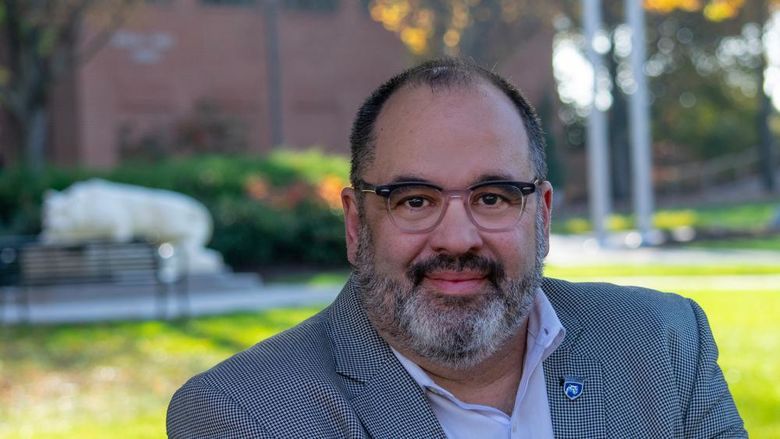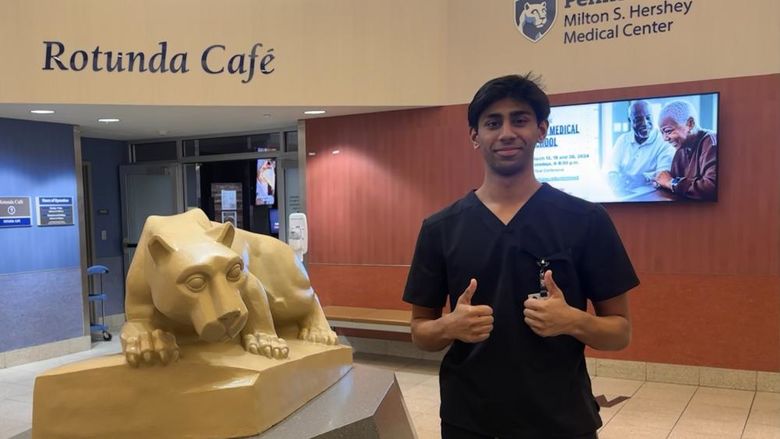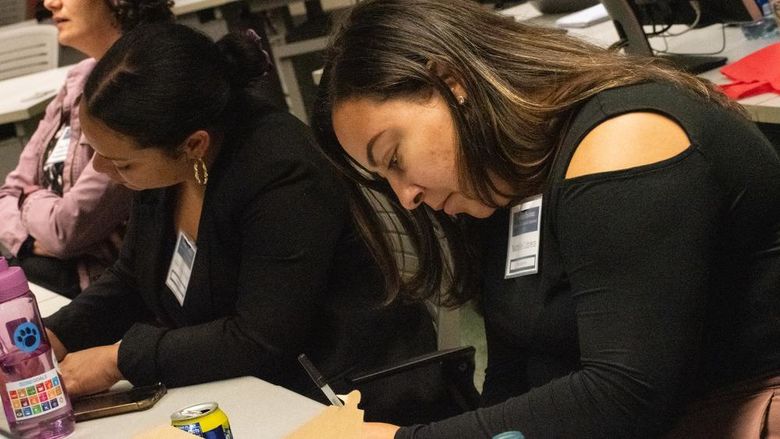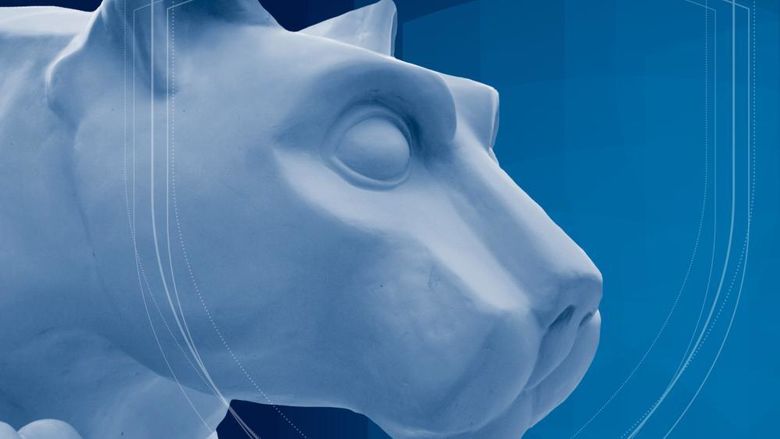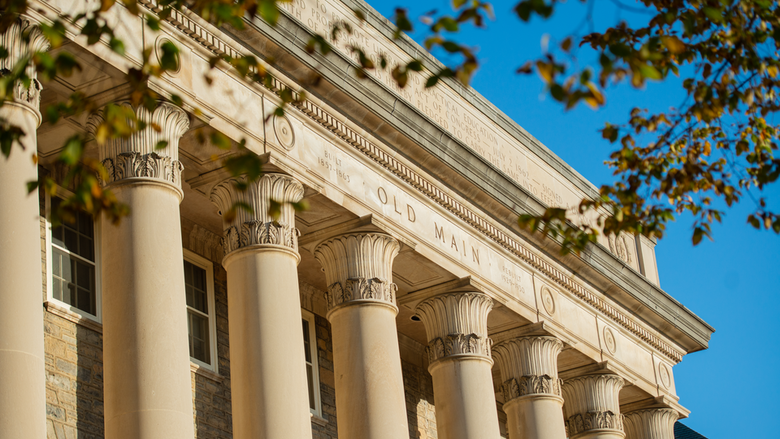MIDDLETOWN, Pa. — Executive Vice President and Provost Nicholas P. Jones discussed Penn State’s Commonwealth Campuses and how they continue to fulfill the University’s mission of teaching, research, and service individually and collaboratively, during a report today (July 21) to the Board of Trustees.
Jones emphasized the many benefits of the University’s unique structure, including how it provides residents of the Commonwealth access to higher education wherever they live. Penn State has 20 undergraduate campuses across Pennsylvania, as well as two law schools, a medical college, a school of graduate and professional studies, Pennsylvania College of Technology in Williamsport, and the the World Campus.
“Our campuses, which vary in size and program portfolios, advance the University’s mission and are key parts of their broader communities,” Jones said. “They enable opportunities and outcomes that other institutions cannot.”
Jones focused on three Penn State campuses in the Capital Region – Harrisburg, Carlisle and Hershey – to show how those entities have many differences but still belong to and benefit from being part of what he called “One Penn State.”
“What is especially interesting is how different some of our campuses are – from their unique histories to how they operate today,” Jones said. “And yet, no matter how contrasting their missions, programs or demographics may be, the campuses are still clearly part of one united Penn State.”
Penn State Harrisburg enrolls more than 5,000 students and offers more than 65 degree programs. Meanwhile, the Carlisle campus is the home of Dickinson Law, the fifth-oldest law school in the United States, and Hershey is home to the College of Medicine and the Penn State Health Milton S. Hershey Medical Center. These seemingly disparate pieces fit together, Jones said, because they share the University’s mission and core institutional values.
The close proximity of Penn State Harrisburg, Penn State Hershey Medical Center, the College of Medicine, and Dickinson Law also enables unique opportunities for academic collaboration, interdisciplinary research and entrepreneurship opportunities.
For example, Dickinson Law and Penn State Harrisburg offer cooperative programs leading to the degrees of juris doctor, to be granted by the Dickinson School of Law, and either the Master of Business Administration or Master of Public Administration, to be granted by Penn State Harrisburg. These concurrent degree opportunities enable students to earn both a law degree and a professional degree in business.
Meanwhile, the Invent Penn State initiative has fostered innovation and entrepreneurship opportunities in the region.
“In February 2016, Penn State President Eric Barron joined representatives from the College of Medicine, Dickinson Law, Penn State Harrisburg and this region’s business community to celebrate the awarding of a $50,000 SEED grant from Invent Penn State,” Jones said. “It was one of only six SEED grants awarded, but it was unique in that it involved these three Penn State entities, all contributing to innovation and entrepreneurship in the Capital Region.”
Ultimately, the Commonwealth Campuses are a large and dynamic part of the University, serving tens of thousands of students who are making a difference in their communities, Jones said.
“We will continue to leverage our unique structure,” Jones said, “to meet our obligations regarding educational access and affordability and fulfill Penn State’s land-grant mission.”
For more information, read Jones’ full remarks to the board and view his accompanying visual presentation at http://provost.psu.edu/speeches-presentations/.
